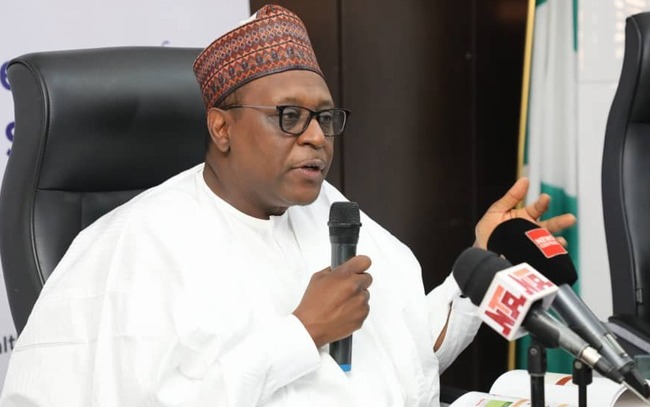The Federal Government has reaffirmed its commitment to reducing maternal and infant mortality in the country through family planning.
The Coordinating Minister of Health and Social Welfare, Prof Muhammed Ali Pate, in his remarks at the ongoing 8th Nigeria Family Planning Conference 2024, noted that family planning is critical to managing population growth and addressing maternal and infant morbidity.
The three-day conference themed, “Sustaining commitments for family planning within the Nigeria health sector renewal investment initiative, advancing progress towards achieving FP2030 goals,” is organised by the Association for the Advancement of Family Planning in collaboration with the Federal Ministry of Health and Social Welfare.
Pate, represented by the Permanent Secretary, Kachallum Daju, also disclosed that the federal government have made significant progress, with fertility rates declining from six children per woman in 1990 to 4.8 today.
“The modern contraceptive prevalence rate has risen from 4% to 15%. However, the unmet need for family planning remains high at 20%, and regional disparities exist.”
To accelerate progress, Prof Pate emphasized the need to prioritize domestic funding for family planning, strengthen the supply chain, and integrate family planning into essential services.
“We must also empower young people, who make up over half of Nigeria’s population, with youth-friendly family planning services,” he added.
The minister urged all stakeholders to seize the moment, innovate, collaborate, and deliver on their shared commitments to transform family planning into a cornerstone of Nigeria’s sustainable development agenda.
ALSO READ: NPC begins study into maternal, child mortality in Oyo
The Federal Government has set a target of achieving a modern contraceptive prevalence rate of 27% by 2030, in line with the United Nations Sustainable Development Goals.
Pate noted that the government is committed to increasing access to family planning services, particularly in rural and hard-to-reach areas.
“We are working to strengthen our healthcare system, improve the quality of care, and increase access to family planning services,” he said.
The minister also emphasized the importance of addressing the social and cultural barriers that prevent many Nigerians from accessing family planning services.
“We need to engage with community leaders, faith-based organizations, and traditional rulers to promote accurate information and build trust,” he said.
The government is also working to increase funding for family planning programs, including the procurement of contraceptive commodities.
“We have secured the National Council on Health approvals of budget lines dedicated to family planning at federal and state levels,” Prof Pate said.
The minister expressed appreciation for the support of development partners, who have been instrumental in Nigeria’s efforts to promote family planning.
“We appreciate your commitment to our shared goals and look forward to continuing our partnership,” he said.
“Family planning is critical to managing population growth, reducing maternal and infant mortality, and improving the overall health and well-being of Nigerians,” he said.
The minister urged all stakeholders to work together to achieve the government’s family planning goals and to ensure that every Nigerian has access to family planning services.
Nigeria faces significant challenges, including a high total fertility rate, which poses substantial challenges to economic and social development. To address these challenges, the government aims to create a future where every woman and girl in Nigeria has access to family planning services.
Also speaking, the Senior Special Adviser to the President on Health, Dr Salma Anas Ibrahim, stressed the importance of inclusive conversations, taking into account the perspectives of all stakeholders, including faith-based organizations, community leaders, and traditional rulers.
“We need to engage with them and ensure that they are equipped with the necessary information and resources to promote family planning in their communities.”
She also added government has been advocating for a homegrown solution to Nigeria’s family planning challenges, developing strategies tailored to the country’s unique context and needs.
“Key challenges include limited access to family planning services, particularly in rural areas, and a lack of awareness about family planning.”
“To address these challenges, the government plans to invest in education and awareness-raising programs, working with community leaders, faith-based organizations, and traditional rulers to promote family planning.”
“Additionally, the government aims to address cultural and religious barriers to family planning, engage with community leaders and religious leaders, and invest in research and development to improve family planning programs,” she said.
READ MORE FROM: NIGERIAN TRIBUNE
